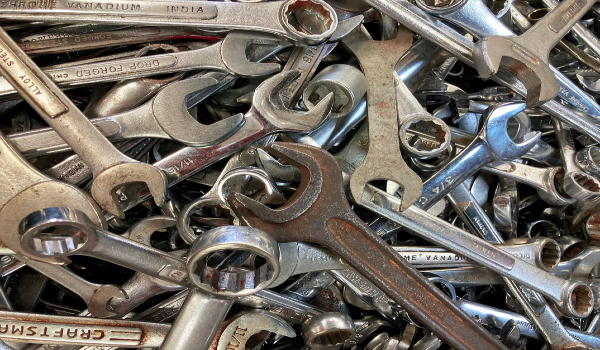As a buyer of machined parts, confidence in your machining supplier’s entire process is essential. This includes their ability to meet your part specification and schedule, perform maintenance on machines and even trusting that they’ll prioritise your confidentiality at all times.
You can find out how to assess whether a supplier will guarantee your confidentiality in our blog here.
While it can often be tricky to assess a supplier thoroughly as a machining buyer, there are key areas that indicate commitment to quality. One of these is types of maintenance – something you can discuss with your potential supplier, as well as evaluate while on a site visit.
Machine maintenance
Any machine shop can have new machinery, at least for a while. Whilst this looks impressive, all it really shows is evidence of a big budget, rather than commitment to a robust and thorough maintenance programme.
A thorough maintenance strategy is important. These machines are relied upon, sometimes 24/7 to produce consistent, accurate results. As a buyer, you need to be reassured that they’re receiving the proper care, getting repaired or replaced when needed. Regular cleaning and routine maintenance removes debris and residue that can lead to costly breakdowns and delays.
Some key measures to look for include:
- The general condition of the machines and equipment. If it’s 15 years old but still looks new, that’s a great indicator of an effective maintenance programme.
- Are the machines kept clean inside and out, as well as on top and underneath?
- Are there any leaks and spills that have been ignored? is corrective maintenance necessary?
Is the coolant maintained properly?
It’s vital for optimal machine performance that the coolant is maintained properly, especially with regards to coolant concentration. Bacteria in coolant is one of the worst problems, leading to damage of the coolant ingredients and reduced coolant performance. Rancid coolant not only negatively affects tool life, it’s also hazardous to health. On your visit, check if the machine hall smells- it’s a quick indicator of poorly maintained coolant.
Ask about planned preventative maintenance (PPM)
It’s important that machine shops have routine schedules for maintenance operations, including PPM. This will identify potential problems before they turn into a full breakdown situation – and before they affect your buying lead times.

Ask your supplier how they manage their PPM programme. For example, do they have fixed shut downs? If they do, ask when the next scheduled service is and how it’s likely to impact your project.
It is also telling if a supplier does not have a next shut down planned. In this instance, ask how exactly they prioritise and complete their PPM tasks.
Machine service records
If you’re a particularly inquisitive buyer, ask to see your supplier’s machine service records. This will allow you to see what maintenance tasks were recommended at the last machine service, and importantly, if they’ve been completed.
From a supplier’s point of view, accurate records will help them identify recurring problems more easily too- giving you confidence that they’ll be able to identify, and sort out any issues quickly.
Conclusion
Machine maintenance might seem something that buyer’s should not be too concerned with. This is not true though. Your supplier’s commitment to regular maintenance of their machine shop not only shows an important attention to detail and quality; it also means your schedule, lead times and accuracy are much less likely to be negatively impacted by lengthy and costly breakdowns.

Our Machining Buyer’s Guide is full of information on buying machined parts, written especially to help buyers through the entire process.

 Get in touch
Get in touch

